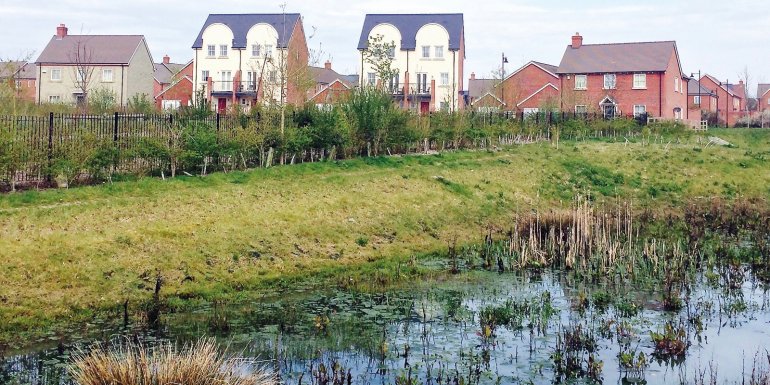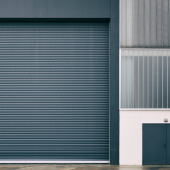Industry Opinion

Raj Somal, Director of sustainable engineering consultancy Dice, says investment in sustainable drainage systems by property developers and planners is the only thing that will alleviate the drainage strain.
With an increase in the built urban environment and plans to build 300,000 new homes every year, the permeable land across the UK is diminishing. This means the surface runoff water is overwhelming drainage systems. Over the past six years, there has been considerable investment in the UK in protecting property from the risk of flooding.
Government investment of £2.6bn between 2015 and 2021 has seen over 314,000 homes become better protected, with more than 850 new flood and coastal erosion defence projects completed. It has been suggested that this work is estimated to have reduced national flood risk by 5%. But for homeowners living in at-risk areas, does this offer enough reassurance that the issue of flooding is being taken as seriously as it should?
Investment in sustainable drainage systems (SuDS) seems like a better plan. SuDS mimic natural water systems and are an efficient way to manage surface water drainage. They are designed with four key components in mind – water quality, water quantity, amenity and biodiversity. By designing SuDS that follow these four pillars, they will effectively be used to control, absorb and treat surface runoff. They are specifically designed to not be an eyesore, and are integrated through planning into the local landscape.
SuDS can be underground and overground, but it’s those on the surface that provide the most opportunity for treating surface runoff within the built environment. There are several different types of SuDS, which are slowly being implemented across the UK for both larger- and smaller-scale projects. For example, on a larger scale, detention basins are storage basins covered in vegetation to capture and store runoff, which is then slowly discharged via a restricted outfall, reducing the impact on drainage features downstream. On a smaller scale, swales are shallow, flat-bottomed, vegetated open channels designed to convey, treat and often attenuate surface water runoff.
As we recognise the importance of protecting our environment, it is becoming increasingly obvious that the UK must protect its existing resources – one of which is water. Implementing SuDS into the UK’s built environment will allow us to make the most of surface water runoff that would otherwise be wasted, and support the growing need to protect homes from flooding.
SuDS offer great sustainability advantages to the local landscape, vegetation and wildlife, providing better quality spaces to the residents of a newly-built environment. So, if they are advantageous to both the climate and biodiversity of the UK, as well as an effective way to control and manage flooding, stormwater runoff and water shortages, the only question is: why are they still not a standard part of the planning process?
Find out more about Dice at diceconsult.co.uk
 Raj Somal
Raj Somal
Following a degree in civil engineering from Nottingham Trent University and 12 years of experience in the UK engineering and construction industry, Raj Somal co-founded engineering consultancy Dice in 2018.
Image credit | iStock









